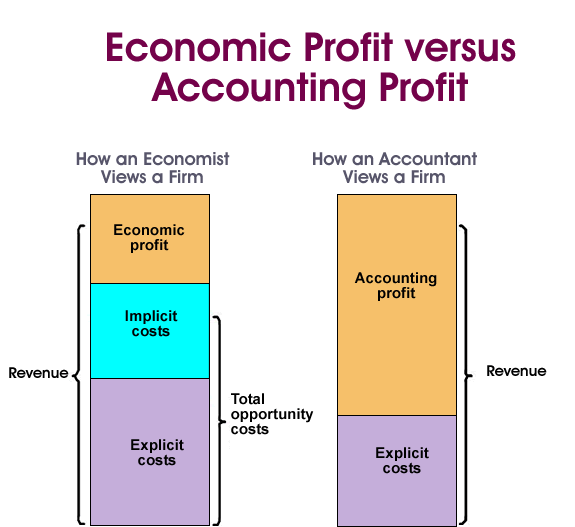How to Differentiate Between Accounting and Economic Profits
Instructions
-
1
Accounting Profit
When dealing with accounting profits, a business usually refers to the financial gains or losses it realizes on an explicit basis i.e. totaling the revenue receipts and subtracting them from the explicit costs it has incurred. This can be in the form of purchases such as raw materials, land, equipment, machinery and other company related expenses which incorporates wages, rent, interest etc. The revenue will generally be referred to as the price they get from selling their products and services. -
2
Economic profits
Economic profits plainly differ from accounting ones as they take into account opportunity cost, which is referred to the cost for the next best alternate. This is the additional cost that is subtracted or sacrificed - usually denoted as an implicit one. It explains how accounting profits are usually overestimated as they ignore the relationship between scarcity and choice. In economic theory, zero profits are not considered bad even though no extra revenue is being earned. -
3
Differences
As mentioned earlier, economic profits are only realized when the revenue amount exceeds opportunity cost. However, in accounting, profits are identified as soon as revenue exceeds the accounting cost of the firm. Economic profits, in all probability, will also be less than their accounting counterparts. Moreover, accounting profits will be calculated for a certain period of time.
For a company, both methods hold significance. Accounting profits help them determine taxable income, measure growth and gauge their internal health. As for economic profits - they become helpful during mergers and production analysis. -
4
Example
For simplicity, let’s consider an example of an individual who had earned a degree in business administration but opted to pursue freelance writing. Let’s suppose that the degree promises $1200 each month but the individual is currently earning $500 as a freelancer. If his expenses are $200, then he is making accounting profits of $300. However, in economic terms, he is at a loss, in the region of $1000. In order to make economic profit, the individual must earn more than $1400.





